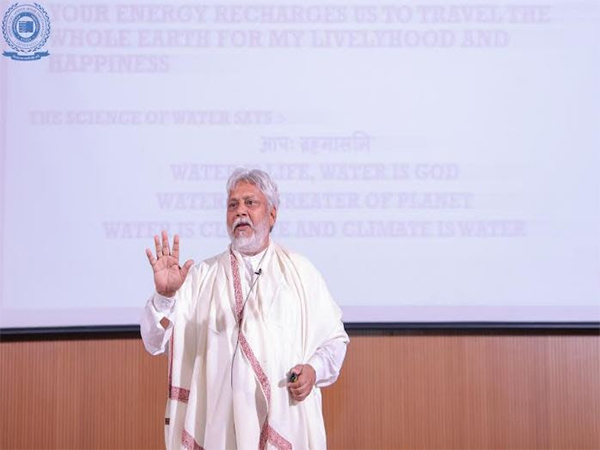
Ecuador's Indigenous defenders face growing threats
Nov 03, 2024
Quito [Ecuador], November 3: Indigenous environmental defenders in Ecuador are suffering an increasing number of threats and sometimes deadly attacks.
Amid spiraling violence in the country, activists said during U.N. COP16 nature talks in Colombia this week.
Nearly 200 countries are gathered in the city of Cali in an attempt to agree on a deal to implement the landmark 2022 Kunming-Montreal Biodiversity Framework agreement that aims to end destruction of nature by 2030.
Among the goals of that agreement was heightened protection for environmental defenders. But during the summit, slated to end late on Friday, Indigenous activists from Ecuador said danger for their communities was growing.
"It's become a tense and terrible problem in Ecuador," Juan Bay, president of the Waorani Indigenous community, told Reuters, adding that threats have increased since a 2023 referendum in Ecuador approved a ban on oil drilling in the Amazon.
COP16 host Colombia is regarded as the world's most dangerous country for environmentalists and land rights defenders, with dozens of activists killed each year.
Ecuador has experienced rising violence in recent years at the hands of organized crime, with President Daniel Noboa declaring a state of internal armed conflict earlier this year and designating almost two dozen gangs as terrorist groups.
Negotiations at COP16 include discussions around monitoring killings of people targeted for efforts to protect the environment, but a proposed measure for recording them does not go far enough, said Natalia Gomez, the climate change policy advisor for advocacy group, EarthRights.
"Unfortunately, that indicator being discussed is optional and binary, which means that governments will only say, 'Yes, we're doing it', or 'No, we're not doing it'," she said.
According to the U.N. Convention on Biological Diversity website, Ecuador has not reported on its aims to protect environmental defenders.
"Ecuador has seen an increase" in threats, Astrid Puentes, U.N. special rapporteur on the right to a healthy environment, told Reuters.
Ecuador's government must comply with standards for environmental protection and implement protection measures for those who might receive threats, Puentes said.
Ecuador's secretariat of indigenous peoples and nationalities did not immediately respond to questions from Reuters.
Reported killings are creating a climate of fear for Indigenous communities trying to protect their homes, said Jhajayra Machoa, from CONFENIAE, the main organization of indigenous groups in Ecuador's Amazon.
"It's very hard to face this situation," she said.
Source: Fijian Broadcasting Corporation









